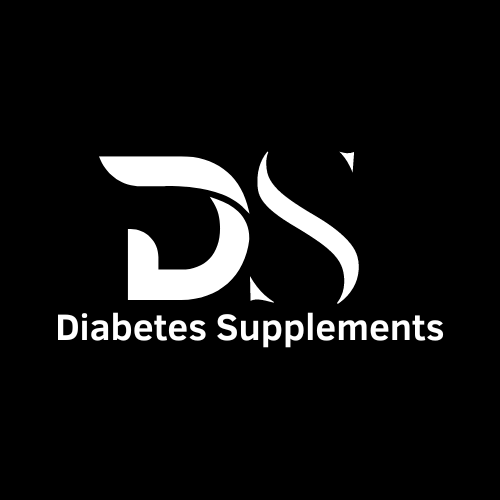Quercetin Supplement for Diabetes
Introduction
Managing diabetes can be a challenging task, but what if there was a natural way to help control it? Enter quercetin, a powerful plant compound known for its numerous health benefits. In this article, we’ll explore how quercetin can be a game-changer for those with diabetes.
Recommended ⇑⇑⇑ Click here
Understanding Diabetes
Diabetes is a chronic condition that affects millions worldwide. There are two main types: Type 1 and Type 2. Type 1 diabetes is an autoimmune disorder where the body attacks insulin-producing cells. Type 2 diabetes, more common, is characterized by insulin resistance. Both types lead to high blood sugar levels, which can cause severe complications if not managed properly. Symptoms include excessive thirst, frequent urination, and fatigue.
Natural Supplements for Diabetes Management
Managing diabetes often involves medication, lifestyle changes, and sometimes natural supplements. People turn to natural supplements to avoid side effects associated with medications and to boost their overall health. Quercetin, a potent antioxidant, has gained attention for its potential benefits in diabetes management.
What is Quercetin?
Quercetin is a flavonoid found in many fruits, vegetables, and grains. It’s renowned for its antioxidant and anti-inflammatory properties. Common sources include apples, onions, berries, and grapes. Besides its general health benefits, quercetin is being studied for its role in managing chronic diseases like diabetes.
Quercetin and Its Role in Diabetes Management
Quercetin’s antioxidant properties help combat oxidative stress, a major contributor to diabetes complications. Its anti-inflammatory effects reduce inflammation, which is often elevated in diabetics. By addressing these issues, quercetin can help manage diabetes more effectively.
How Quercetin Works in the Body
Quercetin works by inhibiting certain enzymes that break down carbohydrates, thus reducing blood sugar spikes. It also improves insulin sensitivity, making it easier for the body to use glucose efficiently. This dual action helps in maintaining stable blood sugar levels.
Scientific Studies on Quercetin and Diabetes
Numerous studies have explored quercetin’s effects on diabetes. One study found that quercetin supplementation significantly reduced blood sugar levels in diabetic rats. Another research showed improved insulin sensitivity in humans. These studies suggest quercetin’s potential as a supportive treatment for diabetes.
Benefits of Quercetin Supplementation for Diabetics
Recommended ⇑⇑⇑ Click here
Quercetin offers several benefits for diabetics:
– Blood Sugar Regulation: Helps in maintaining stable blood sugar levels.
– Cardiovascular Health: Reduces the risk of heart disease, common in diabetics.
– Weight Management: Aids in weight loss, which is crucial for managing Type 2 diabetes.
Dosage and Forms of Quercetin Supplements
Quercetin supplements come in various forms, including capsules, tablets, and powders. The recommended dosage varies but generally ranges from 500 to 1000 mg per day. It’s essential to consult with a healthcare provider to determine the right dosage for you.
Potential Side Effects and Precautions
While quercetin is generally safe, some people may experience side effects such as headaches or stomach upset. Pregnant or breastfeeding women and individuals on certain medications should avoid quercetin supplements unless advised by a healthcare provider.
Combining Quercetin with Other Treatments
Quercetin can be combined with other diabetes treatments for enhanced effects. However, it’s crucial to consult with a healthcare provider to avoid potential interactions with medications. Some studies suggest that quercetin works synergistically with other antioxidants and anti-inflammatory agents.
Dietary Sources of Quercetin
Incorporating quercetin-rich foods into your diet is a natural way to reap its benefits. Foods high in quercetin include onions, apples, berries, grapes, and leafy greens. Adding these to your meals can help boost your intake of this beneficial flavonoid.
How to Choose a Quality Quercetin Supplement
When choosing a quercetin supplement, look for products that are standardized to contain a specific percentage of quercetin. Trusted brands with good reviews are often a safer choice. Always check for third-party testing to ensure quality and purity.
Real-life Experiences
Many diabetics have shared positive experiences with quercetin supplementation. Testimonials highlight improved blood sugar control, better energy levels, and overall enhanced well-being. These success stories provide hope and motivation for others considering quercetin.
Conclusion
Quercetin offers a promising natural approach to managing diabetes. Its antioxidant and anti-inflammatory properties, combined with its ability to regulate blood sugar levels, make it a valuable supplement for diabetics. As always, it’s crucial to consult with a healthcare provider before starting any new supplement.
FAQs
1. What is the best source of quercetin?
– Natural sources like apples, onions, and berries are excellent. Supplements are also available for higher doses.
2. Can quercetin replace my diabetes medication?
– No, quercetin should be used as a supplement alongside your prescribed medication, not as a replacement.
3. Are there any side effects of quercetin?
– Some may experience mild side effects like headaches or stomach upset. It’s generally considered safe for most people.
4. How long does it take to see results from quercetin supplementation?
– Results can vary, but some people report improvements within a few weeks of consistent use.
5. Is quercetin safe for everyone?
– While generally safe, it’s best to consult with a healthcare provider, especially for pregnant or breastfeeding women and those on certain medications.

